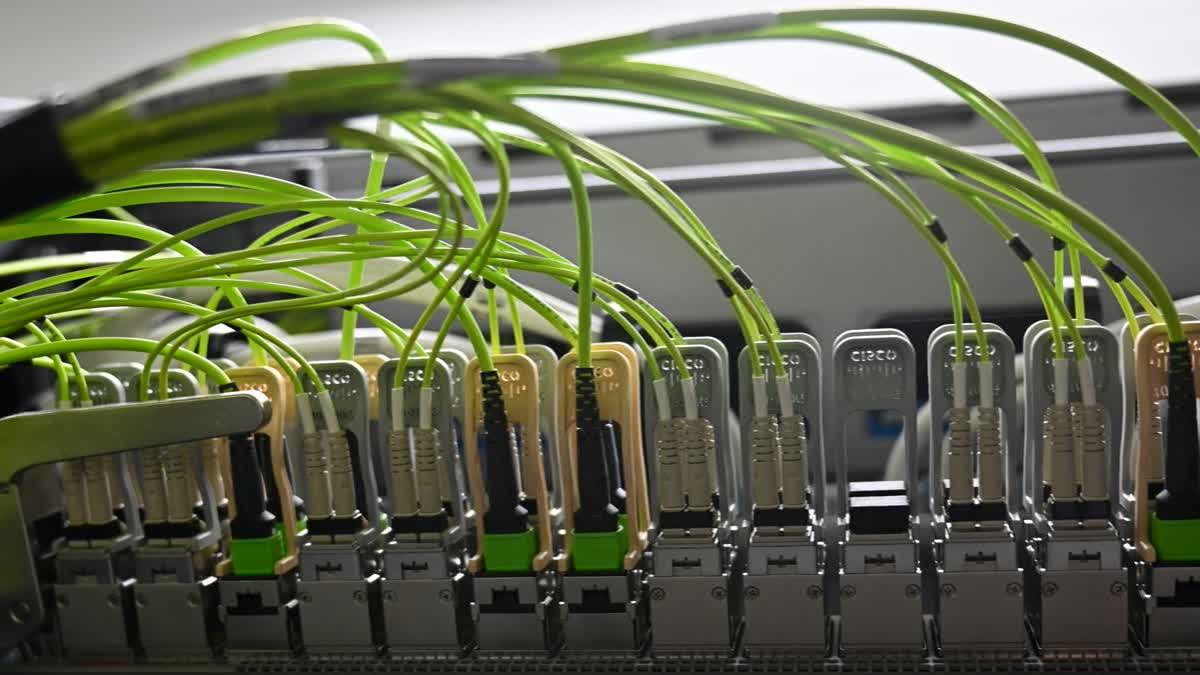New Delhi: The Ministry of Home Affairs (MHA) and Ministry of Electronics and Information Technology (MeitY) have started negotiations with US-based Internet Corporation for Assigned Names and Numbers (ICANN) for setting up a cluster of Internet root servers in India, after it came to notice that law enforcing agencies are finding it tough to detect the roots of threat emails sent to different schools and airlines.
Bases of internet root servers will enable immediate response to cyber and malware attacks and contain attacks at the internet service provider (ISP) gateways themselves.
"MeitY is in discussion with Internet Corporation for Assigned Names and Numbers (ICANN) to host multiple root servers in India. Based on the network topology, network architecture and India's fast-expanding internet penetration, ICANN is proposing to deploy a constellation of IMRS (ICANN Managed Root Server) single instances placed next to recursive servers (mainly of Indian Internet Service providers) across the country that would ensure greater resiliency. MeitY /NIXI is in the process of discussing the way forward with ICANN along with concerned stakeholders in India," an official from the security establishment told ETV Bharat on Tuesday.
Given the increasing cyber and malware attacks by terrorist organisations, a parliamentary committee on external affairs also urged the Centre to evolve a strong mechanism for collaborative efforts amongst the agencies concerned.
Stressing the need to bring the discussion to a fruitful conclusion at the earliest, the committee chaired by Congress MP Shashi Tharoor also urged the ministry to actively facilitate the ongoing discussions with ICANN and other stakeholders.
"The negotiations should be concluded at the earliest so that internet root servers are based in India to enable an immediate response to cyber and malware attacks and contain such attacks at the ISP gateways," the report stated.
The capabilities of law enforcement agencies to counter cyber and malware attacks in the country may also be enhanced, the committee said.
In the last few months, more than 300 flights received hoax bomb threats, mostly on social media. On October 22, around 50 flights received threats, including 13 each from IndiGo and Air India. Similarly, hundreds of schools in Delhi and NCR also received threat emails. As far as bomb threats by schools are concerned, most of the emails have been sent using a proxy server.
In the latest incident this month when at least 44 schools in Delhi received a bomb threat, the internet protocol (IP) address was traced to New York's Utica.
"A proxy server was used to send the email. A proxy server is a computer server that gives facility to another system to use an indirect network connection to another network service. The person can use a proxy server to send digital files and can alter digital history as well," the official said.
The use of a proxy server makes it tough for law-enforcing agencies to trace the IP address and the person who is using it because it bounces the actual IP address. In addition, the government has recently revised rules over bomb hoaxes.
"Mechanism to handle hoax calls has been revised. Now, the Bomb Hoax Assessment Committee (BHAC) can sit for a meeting without everybody's presence at the control centre. The committee can meet online as well…This has certainly empowered the law enforcing agencies to handle this kind of hoax threat on an emergent basis," Shrikant Kishore, deputy inspector general (operations) of CISF which securers airports, said.
Also Read:



